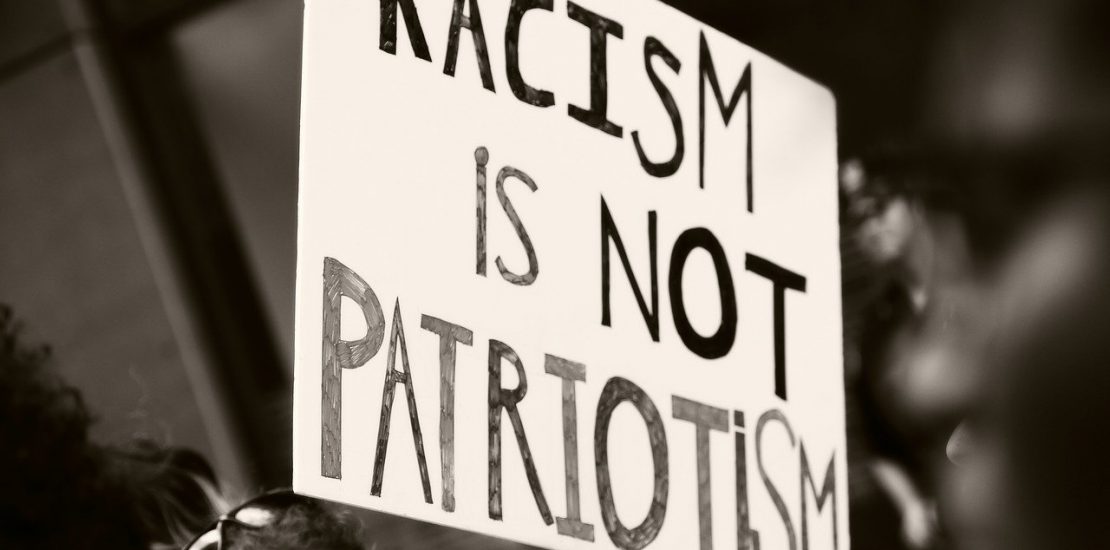- June 3, 2020
- Posted by: David Marshall
- Category: Leadership, Management

We never had to deal with too much racism during my time at Robroy, mostly because I made sure people knew that wasn’t allowed.
One day, we had an incident where someone had scribbled someone’s name on a bathroom door, and calling them a racial slur.
 I certainly wasn’t going to stand for that or allow it in our workplace. That day, I put a stop to all work, gathered everyone together on the factory floor, and told the entire company all at once that this was not acceptable. Not to the individual in question, or the organization as a whole. I apologized directly to the person who the slur was directed at, on behalf of myself and the company.
I certainly wasn’t going to stand for that or allow it in our workplace. That day, I put a stop to all work, gathered everyone together on the factory floor, and told the entire company all at once that this was not acceptable. Not to the individual in question, or the organization as a whole. I apologized directly to the person who the slur was directed at, on behalf of myself and the company.
I told everyone that this was a Zero Tolerance environment for racism, sexism, and intolerance of any kind. I said that if I ever found out who did that, or if I found someone doing it again, they would be immediately fired.
I wanted to make sure that everyone heard the same message at the same time, and to know that there was no room in any environment for that kind of behavior. I made sure that everyone believed what I had said, and it set the stage for everyone else in terms of my expectations.
We all know that this kind of behavior is unacceptable. It’s never acceptable to treat someone poorly in the first place, but it’s even more heinous to do it on the basis of someone’s skin color, nationality, gender, religion, or physical or mental disabilities. It’s reprehensible and immoral, and it takes a special kind of nasty to do it.
I was perfectly justified in creating a Zero Tolerance environment for discrimination, even if it was only for humanitarian reasons. People deserve to be treated with courtesy and dignity, and I made sure this was always the case in the workplaces I managed.
But personal feelings aside, there are some important business reasons why a company should never tolerate racism, sexism, or any other kind of discrimination.
For one thing, it’s completely illegal. The Civil Rights Act, the Americans With Disabilities Act, and other laws make it illegal to create a hostile work environment or discriminate against someone on the basis of race, sex, nationality, religion, age, disability, military service, and so on. Companies have been successfully sued for millions of dollars for simply allowing racism and sexism to happen at work. If nothing else, that piece of racist graffiti in our bathroom could have resulted in an expensive lawsuit.
For another, a hostile work environment affects company morale, which can affect productivity. If people aren’t happy at work or they feel bullied and harassed, they won’t produce and help your company succeed. So even if your only concerns were productivity and efficiency, and not the well-being of your fellow humans, you should be concerned that racism can hurt your bottom line.
Bottom line, you may not be able to control what people do or think in their personal lives, but you can control what people do in the company. And any form of discrimination is very disruptive to the company culture and its effectiveness.
The company has an obligation to look after the customer — that’s the ultimate goal, because it’s the customer that pays our salaries. Any disruption to that process is going to disrupt the customer, and collectively, the company will suffer.
So, in your private life, you might be a bigot, but when you’re at work, you must adhere by the standards and the norms within the enterprise.
I’ve been a manufacturing executive, as well as a sales and marketing professional, for a few decades. Now I help companies turn around their own business, including pivoting within their industry. If you would like more information, please visit my website and connect with me on Twitter, Facebook, or LinkedIn.
Photo credit: Thisabled (Pixabay, Creative Commons 0)

